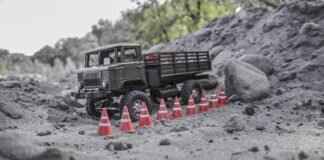The Army Welfare Housing Organisation (AWHO) has stepped up to take full responsibility for the expenses associated with demolishing and rebuilding the Chander Kunj Army twin towers on Silversand Island in Vyttila. This decision came in response to a review petition filed by residents before the Kerala High Court, challenging a verdict issued on February 3 mandating the structural overhaul of the twin towers due to identified issues.
The AWHO made it clear that the initial ₹175 crore mentioned in court documents might not cover the entire cost of the demolition and reconstruction project. To address this concern, a committee led by District Collector N.S.K. Umesh was established to oversee the process. This committee, which includes representatives from the Public Works Department (PWD) and structural experts, estimated that the project could require up to ₹211 crore.
Residents’ Concerns and Decisions
In response to the court’s directive, the Army towers’ residents’ association was tasked with informing the district committee about the number of owners opting for a buy-back option within a week. Some allottees expressed a preference for the buy-back option over waiting for the demolition and reconstruction process to unfold. This sentiment was duly noted by the court, emphasizing the importance of resident input in decision-making processes.
Furthermore, the court instructed the Collector to convene a meeting within two weeks to establish a detailed timeline for the demolition and reconstruction project. The aim was to provide clarity on the planned phases, estimated costs, and the overall course of action. The committee was also directed to communicate the required funds for the initial phase to the AWHO promptly, ensuring timely progress.
Timeline and Compliance
To ensure accountability and progress, the court set a deadline for the Collector to submit a compliance report by May 20, 2025. Despite any pending review petitions, the committee was urged to continue implementing the court’s directives, including the outlined order for the demolition and reconstruction of the Army twin towers. This proactive stance aimed to expedite the process and mitigate further structural risks in the buildings.
In conclusion, the proactive stance taken by the AWHO and the collaborative efforts of the committee signify a positive step towards addressing the structural concerns of the Chander Kunj Army twin towers. By shouldering the financial burden and fostering open communication with residents, the stakeholders involved are working towards a comprehensive solution that prioritizes safety and long-term sustainability. The commitment to transparency and timely action outlined by the court sets a precedent for efficient project management and community engagement in similar endeavors.














